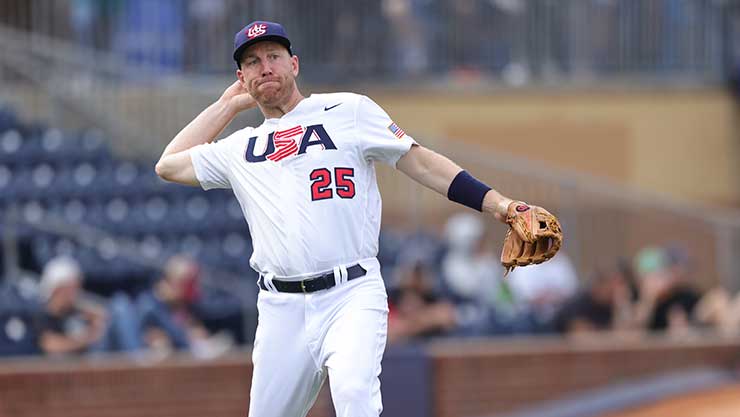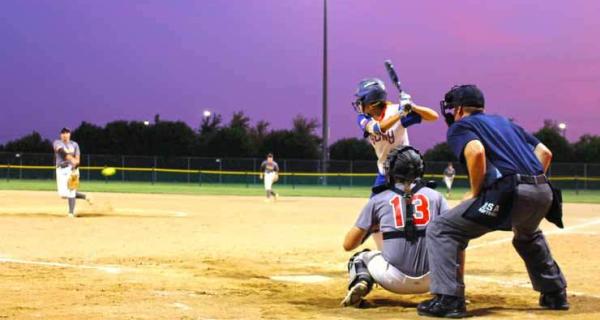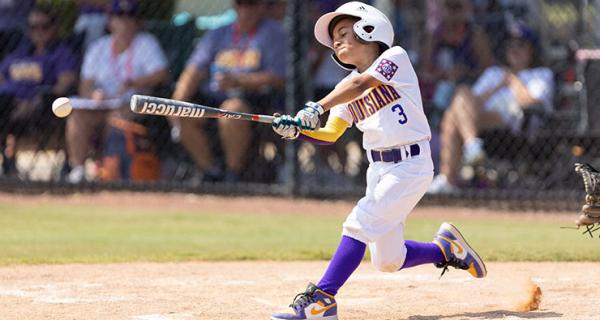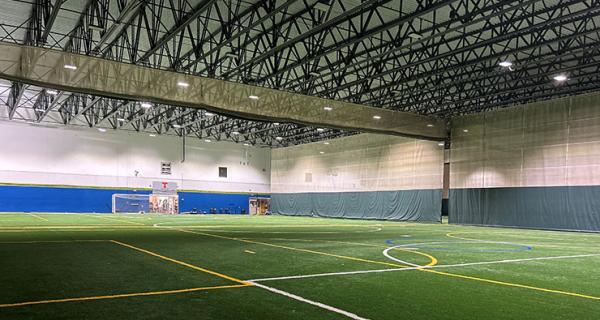How Baseball Scored a Big Win for the 2028 Summer Games
USA Baseball Chief Paul Seiler discusses hardball's return for the 2028 Summer Games and what it means long-term for the sport.

Paul Seiler, executive director and CEO of USA Baseball, recalls watching the Summer Games in Tokyo and wondering, “What if?” The sport, once a mainstay on the grandest international stage, had returned from the IOC’s temporary exile. Some of the best players in the world were playing before Seiler’s eyes. But something was missing: The fans.
Having already been delayed by a year due to the coronavirus, the Tokyo Summer Games went on in 2021—though not as planned. The global pandemic’s cloud was still obvious as health officials determined it wasn’t safe for spectators to be in proximity of athletes who trained for years for the moment to shine.
In five years, baseball steps up the plate again and this time, it figures to be enhanced by the roar of a crowd—perhaps at Chavez Ravine, a tantalizing venue in Los Angeles, home of the 2028 Summer Games. The potential is there for baseball, as well as softball—the sports are represented together under the World Baseball Softball Confederation—to hit out of the park.
USA Baseball has enjoyed tremendous success at the Games, accumulating six total medals in seven appearances, including a silver in Japan and gold medals in Seoul (1988) and Sydney (2000). While winning the gold on home soil is a goal for 2028, the bigger picture involves convincing the IOC that the stick-and-ball sports should be permanent members of the competition lineup.
Seiler stepped up the plate to talk about baseball’s big comeback for LA 2028.

Baseball is coming back to the Summer Games in 2028 but will sit out in 2024 in Paris. What made the difference for Los Angeles?
As the Games continue to evolve, there are going to be certain sports that seem to be natural fits for the culture and the DNA of the hosting country and city. And you look at and you're like, yeah, it feels and seems natural. Maybe not as much for Paris, because, you know, the sport at least isn't a part of the DNA and the culture there like some other sports are. But then you look at the United States, and you go back and it feels like a natural part of who we are. We call it our national pastime. So you know, from our point of view, it seemed very natural for baseball and softball to be you know, strong considerations to be a part of the program.
Baseball and softball are now tied at the hip with international competitions. How has that worked in both sports’ favor?
Baseball and softball were both removed from the Olympic program and we had a look as to International Federations and really had to reinvent ourselves. So, you know, as a lot of credit goes to Riccardo Fraccari, the president of our international federation, and the leadership around him to say that the status quo isn't working, and we've got to look at this through maybe a different lens. That’s what both international federations did and combined to be one international federation with two disciplines. And I think it really benefited both sports. After baseball and softball were removed from the program back in 2005, we were back in Tokyo and will be back again in L.A. If you look at our international federation, I would argue that we're one of the stronger federations on the international landscape right now.
What effect has the World Baseball Classic had on the sport’s profile?
The World Baseball Classic has very quickly become a global showcase that just enhances and complements our participation in the Olympic program. For instance, we had a game with Great Britain in Phoenix in March, and there were 40,000-plus people there in a game that saw the United States win 6-2. As I walked away from that game, I thought there are kids who play baseball in the United Kingdom who are going to continue to play because of what they saw and what they witnessed relative to that competition.
What impact do you see for the Summer Games here, where baseball is still extremely popular?
In the United States, it's just another reminder of what a great sport this is to play. This gives us five years in the runway up to LA 2028 to focus on youth development, education, and safety. There's just so much spotlight that the Games bring to all of the participating sports that'll really help us as a governing body to continue to do our job not only well, but even better.
Can you discuss the growth of women’s baseball and how it relates
We have a very active Women's National Team program. As a matter of fact, they just qualified for the final round of a Women's World Cup that will take place in Canada next summer. So our Women's National Team program has been around for a number of years. And this again is another opportunity to shine a light on the sport. They say a rising tide lifts all ships. The Games provide an opportunity for all of us to take advantage of that.
Is there extra pressure to win the Gold in the USA?
I don't know if I would call it pressure, but every event we play in, one of the things that we talk about as the staff and then to our players is to be playing in the last game of the tournament, which means you're playing in the gold medal game. If we're doing that, then we're giving our chance to win a gold medal. Our goal is to have our national anthem be the last song played at an event. And if that's the case, then that means we've been successful. That's the focus; it's not so much pressure. But I think we all carry an expectation that there is a reality of what this sport means to our nation and vice versa.
Photo Credit: USA Baseball








